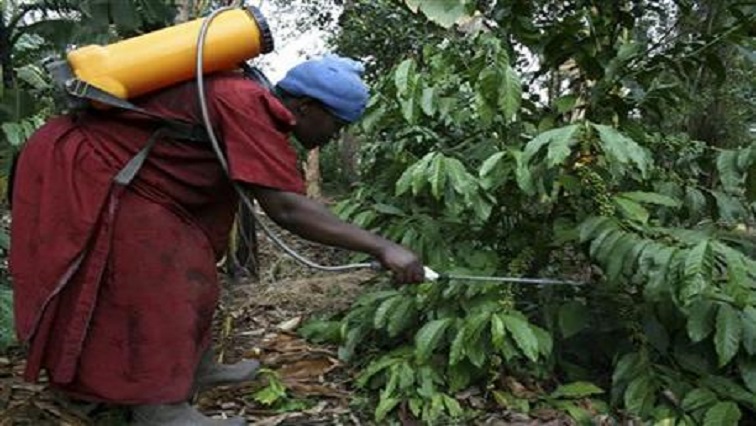Maureen Mugaga grows coffee in Wakiso District, central Uganda. The 38-year-old has been cultivating the crop for the last 17 years but says her earnings have significantly dropped in recent years.
Changing weather patterns partly linked to global climate changes and a drop in price on global markets has affected production over the years.
Coffee was long Uganda’s single largest commodity export, but it has since been overtaken by gold whose shipments exceeded $1 billion in the year to June.
“Coffee farming used to help families find livelihood, it was village business. It provided salt, paraffin and even school fees. It was very reliable in the past but not as much today. In the past it was very valuable to grow coffee, coffee growing families were very wealthy,” she said.
Uganda is Africa’s largest coffee exporter followed by Ethiopia. The country predominantly cultivates robusta coffee.
The government has been pursuing a planting programme lately, to drive up exports, with farmers given free seeds to expand their acreage and to replace aging, unproductive trees.
Uganda’s government has tabled a bill in parliament that seeks to regulate coffee in the country, in a bid to improve production in the sector.
The National Coffee Bill 2018 wants farmers to register with the Uganda Coffee Development Authority (UCDA) among other provisions, to improve planning and coffee traceability as well as services for farmers.
Maureen is among a group of farmers who feel the government move will interfere with their business.
“This bill on coffee growing; licensing, registration when we look at it keenly for us as coffee farmers, we did not find these laws growing up in families that cultivated coffee. Our fathers grew their coffee, dried it and the trade helped them fight poverty. But if all farmers must be registered to grow coffee then we the new ones in the sector get scared even before we benefit. We don’t know what this law is intended to do after registration,” she said.
“These regulations are not bad but they have been politicised which affects the farmers. It’s not right to even go to the extent of declaring the size of the farm. Laws are good because they are needed today, farmers are wrongly harvesting coffee, it’s true, farmers should not harvest premature seeds. Regulators should be able to advise farmers to harvest ripe red seeds only. Also when you dry red seeds then the grade will be competitive,” said Edward Sejjongo, a farmer.
Some experts have also expressed concern over various clauses in the bill, including one that attracts penalties for farmers who violate the new law. Farmers who neglect their coffee plantations for example are liable to a 2 year sentence or a stipulated fine according to the proposed bill.
Uganda forecasts its coffee exports in the 2019-2020 crop year will be about 16 percent higher from the previous period, boosted by favourable weather and expanding acreage as new trees mature.
UCDA says shipments of the beans in 2019/20 (October-September) crop year may reach 5.1 million 60-kg bags, up from 4.4 million bags exported in the previous period.
Andrew Kilama Lajul, is the director of corporate services, at UCDA.
“The western consumers especially the sophisticated are becoming quite particular, they want to know that this coffee we are consuming is not being produced by child labour, they want to know that it is not being produced by using harmful chemicals, they want to know that this coffee is not grown by destroying the environment, that means they want to know that this coffee comes from Elgon, from this specific farmer and to do that you need to know these farmers. To know them you have to register them, which is basically capturing them in a database,” he said
Lajul added that the country is also planning to introduce a coffee auction system that will allow farmers bid directly with buyers instead of relying on traders to market their coffee.
Much of Uganda’s coffee is produced by small holder farmers.






